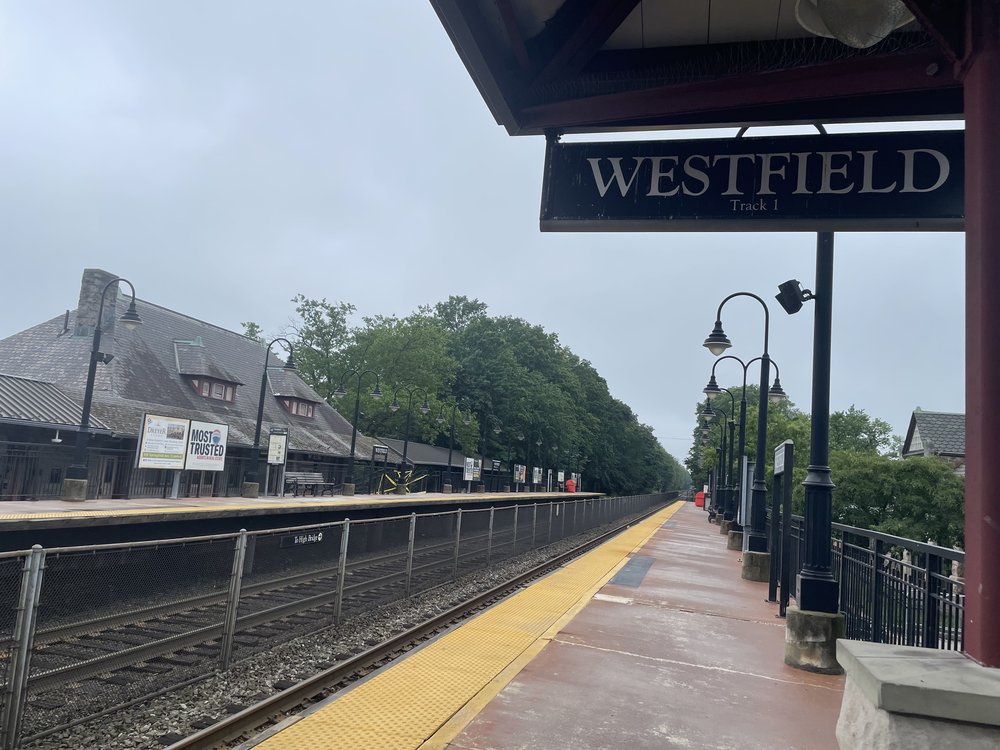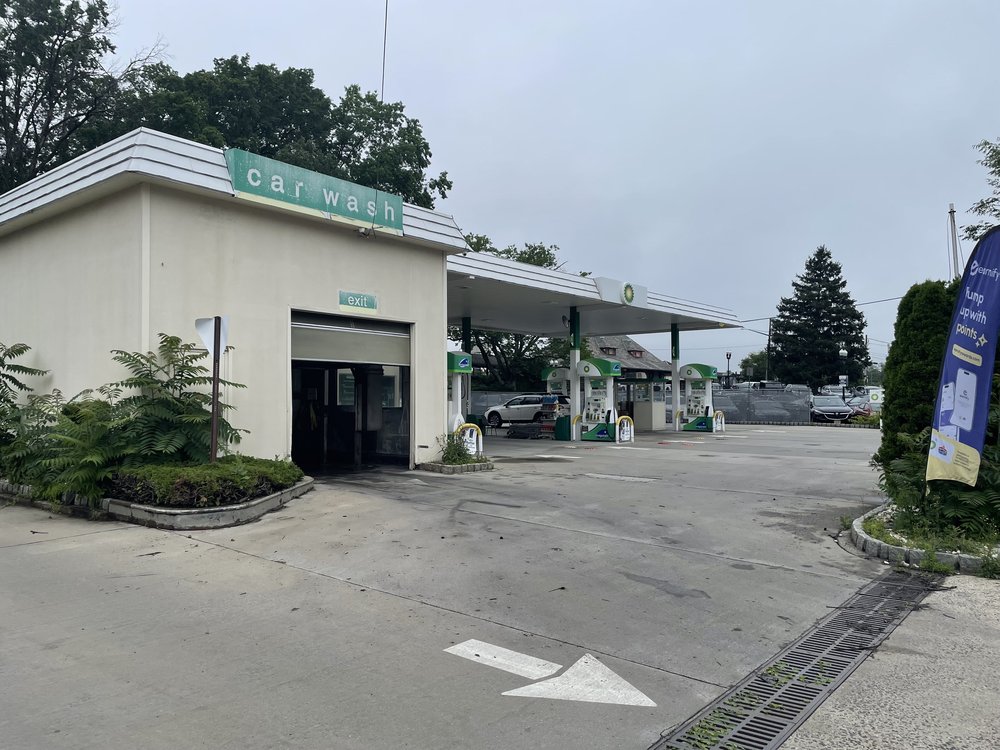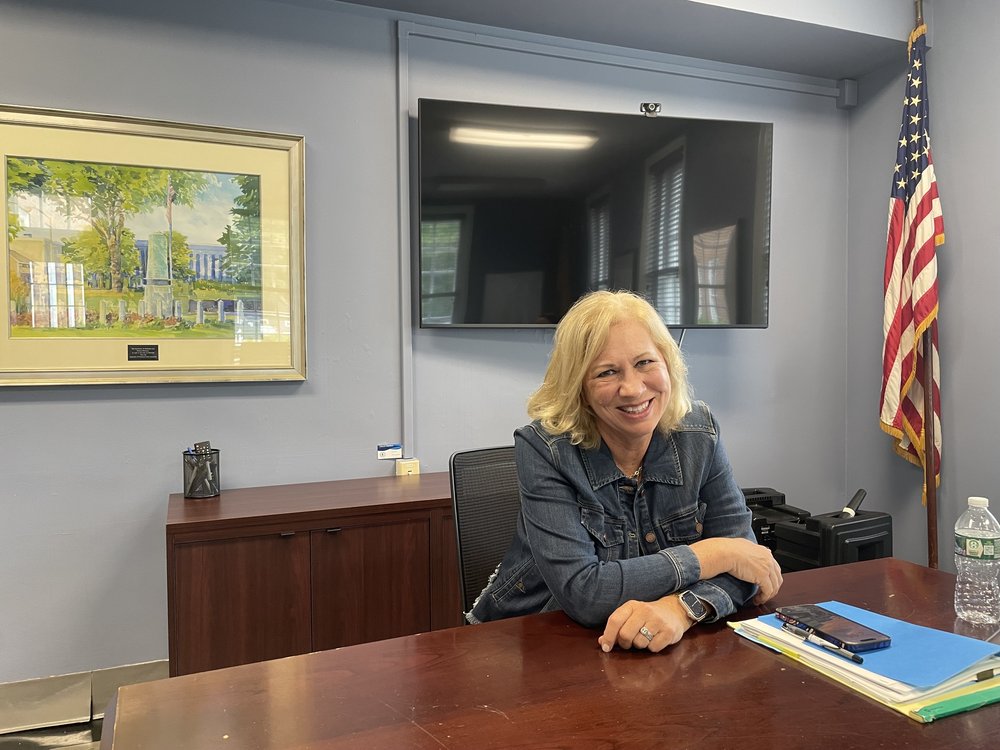Wealthy NJ town wants to add more transit-oriented affordable housing. It might never happen.
June 27, 2025, 8 a.m.
Westfield officials have a plan to redevelop five properties into affordable housing near the town's train station. But all are currently occupied by other businesses.

It’s crunch time for New Jersey towns, which face an important affordable housing deadline at the end of this month. Each municipality in the state is legally required to file a plan by June 30 detailing where and how it will create new low-priced homes in its community over the next decade.
Officials in Westfield, one of the wealthiest locales in the state, were among the first. They voted to adopt their plan on May 5. And the town’s mayor said the affordable housing strategy they’ve put forth focuses on something state lawmakers say they want: transit-oriented redevelopment.
“That is really where it makes sense for affordable housing to be — where there's public transit ,” said Westfield Mayor Shelley Brindle.
Brindle and town councilmembers selected five sites, all within walking distance of the community's downtown train station. From there, New York City-bound commuters can be in Manhattan in 35 minutes to an hour. Altogether, the properties could generate about 100 new affordable homes.
But there’s a catch. All of the locations are currently occupied by other businesses. And when you dig into the details of Westfield’s plan, that could result in none of the housing ever being built. Housing experts say it’s an approach that’s becoming more common as the deadline looms.
“It's pretty similar to what many of the other towns of New Jersey are doing. It's unclear whether it will succeed, but nominally it does comply with the new law,” said Mark McBride, a retired affordable housing financier from Madison, New Jersey.
Every municipality in New Jersey is required to contribute its fair share of affordable housing under a series of state Supreme Court decisions that have led to the construction of more than 50,000 affordable homes — though the requirements are contentious. Many town officials have fought them in court, and have so far failed.
But that mandate, known as the Mount Laurel doctrine, does not technically require town officials to build new homes. The law only requires local governments to create the opportunity for affordable housing to be built in their communities through the proper zoning.
One way this can be achieved is by designating what are known as “overlay zones,” where municipalities take property being used for something else and declare that if it is ever sold or vacated it will be used for housing.

One of the sites Westfield officials selected is just 390 steps from the train station, according to Google Maps. However, it’s currently occupied by a gas station that would need to vacate for the property to be rezoned for housing.
“If they want to keep it as a gas station in perpetuity, they can do that. There's no business that's being shut down or kicked out,” Brindle said. “The whole thing with affordable housing, you have to show your obligation of how you're going to make it happen. It doesn't necessarily mean it will happen .”
Another site, at 219 Elm St., is currently inhabited by a Stop & Shop grocery store. Company spokesperson Daniel Wolk told Gothamist the company has no plans for changes to the property at this time.
Attorney Josh Bauers, a director with affordable housing advocacy organization Fair Share Housing Center, said his group would be reviewing all plans across the state in the coming months.
For towns like Westfield that rely on overlay zoning, Bauers said, advocates will make sure town officials have selected sites that are likely to redevelop.
”We are going to be pretty strict in how we're qualifying sites,” he said. “If they really have put zoning on a site that has no chance to redevelop, we're gonna challenge that.”
Bauers noted that Westfield in the past ”picked a lot of really good sites that ultimately did redevelop and produce affordable housing.”
Michael Moretti owns and operates Top Line Appliance Center, a high-end appliance store at another location that town officials selected for overlay zoning. He said he has no immediate plans to redevelop, but could envision a future mixed-use project that maintains his retail operation on the ground floor while incorporating residential rental units above.
“A thoughtfully designed project — with long-standing businesses like Top Line continuing to serve the community and employ local residents — would represent a win-win: smart land use that supports local employment while also generating additional tax revenue for the town,” Moretti told Gothamist.
Brindle said officials are confident that at least some of the sites will become housing in the future. Jim Gilday, Westfield’s town administrator, noted that under the law, towns are required to “try to choose properties that are likely to redevelop.” He also said overlay zones are just one of the tools that the town is using for these properties near its transit hub.
New Jersey is rapidly running out of vacant land, and the state has placed a heavy emphasis on redeveloping existing property and siting new affordable housing near transit and other resources.
“Westfield is a town that's very built out. And so [it’s] always had to struggle to meet their affordable housing goals, simply for the lack of available land,” McBride said.

Westfield’s current affordable housing plan was drafted by a bipartisan committee and adopted unanimously. But shifting political powers in the town could affect its implementation. After eight years as mayor, Brindle, a Democrat, has said she is not seeking a third term later this year. In the last election, a red wave reset the balance of power on the city council from an 8-1 Democratic majority to just a 5-4 advantage for Brindle’s party.
"[The] thing we all agreed on is that nobody wanted to be at the mercy of the courts," Brindle said. “Everybody agreed that never ends well.”
Between now and the end of August, local residents, housing advocates, builders and other interested parties can review the plans and file challenges with the state’s newly established Affordable Housing Dispute Resolution program.
One vocal group, Westfield Advocates for Responsible Development, has filed litigation in the past against the town’s governing body, challenging affordable housing plans. In a written statement, a spokesperson said the need for affordable housing should not override the need to maintain the character of the town. While it doesn’t support every aspect of the transit-oriented redevelopment plan, it doesn’t intend to challenge it at this time, the spokesperson said.
However, the group said it would reserve further comment on specific projects until there are more detailed redevelopment plans shown to the public.
Hoboken could become second NJ city to bar landlords from using AI to set rent NJ opens first green affordable housing. There might not be more like it.